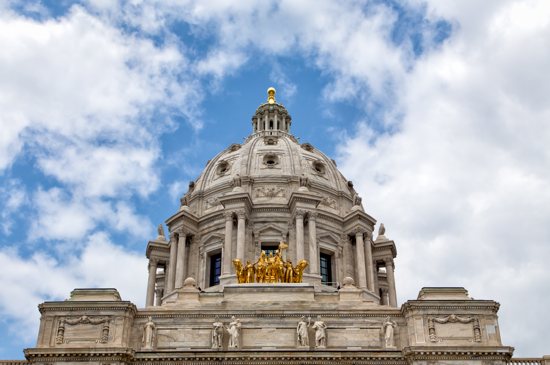
May 15, Gov. Tim Walz signed into state law legislation that, in part, adds a new religious exemption to the Minnesota Human Rights Act (MHRA).
HF4109 was among six bipartisan bills the governor signed into law, including the transportation policy omnibus bill and the pensions supplemental budget related to teachers and retirement systems.
The MHRA, which has been in place since the 1960s, aims to ensure all Minnesotans are treated equally and that no one is discriminated against based on personal traits including disability, race and sex.
The religious exemption pertains to employment, membership, admissions and governance practices within religious congregations and schools, according to the Minnesota Catholic Conference (MCC), which represents the public policy interests of the state’s Catholic bishops and is based in St. Paul.
MCC argued in a commentary published in The Catholic Spirit that an amendment to the MHRA passed last year included gender identity as a protected status, yet a religious exemption was not included. MCC argued this would challenge religious organizations, churches and schools in acting on beliefs regarding gender identity within their institutions.
The religious exemption addition in the MHRA was passed by both the House and Senate May 7 before Walz signed it into state law.
Though the language passed was not the same as initially proposed language, the MCC argued it does accomplish the original goal of restoring the religious exemption. Legislators spent weeks negotiating the final language.
While this religious exemption has now been added in the MHRA, MCC’s attention is also focused on the Equal Rights Amendment (ERA).
MCC argues the ERA — introduced through SF37, with HF173 as its companion — goes beyond protecting against basic forms of discrimination and fails to protect religion within its language. In addition to a lack of religious discrimination protections included in the proposed ERA, MCC has argued it “goes beyond attempting to protect ‘sex’ as a class, but rather would protect people based on their ‘gender identity or expression,’” thus it “would diminish the hard-earned rights and protections of women.”
Hundreds gathered May 8 at the Minnesota State Capitol in St. Paul to speak out against the proposed ERA as Minnesota House legislators prepared to review the ERA’s new language, which previously passed the Senate.
May 13, the Minnesota House delayed its vote on the proposed language. Legislators adjourned just before midnight; there was no immediate indication of when the proposal might be taken up on the floor.
If legislators were to ultimately pass the ERA, it would be submitted to Minnesota voters as a ballot question during a general election year.




